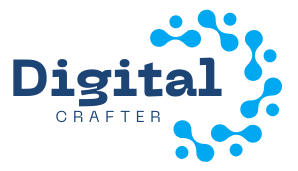In today’s fast-moving digital world, maintaining efficiency without overhauling existing infrastructure is more important than ever. Many businesses still rely on legacy systems to manage their operations but face challenges when integrating modern billing software. Fortunately, several top-tier billing solutions are designed specifically to integrate seamlessly with legacy systems, bridging the gap between old and new technologies.
Here are the top 4 billing software options that can adapt to legacy infrastructure and optimize your financial processes:
1. Zoho Subscriptions
Zoho Subscriptions is a robust billing platform designed primarily for subscription-based businesses. What sets it apart is its extensive API documentation and highly customizable integration capabilities. For companies using legacy ERP or CRM platforms, Zoho provides middleware support, making it easier to connect and sync data without replacing existing systems.
Main Features:
- Automated invoicing and recurring billing
- Custom workflows and integrations using REST APIs
- Real-time analytics and reporting dashboards

2. QuickBooks Enterprise
QuickBooks has long been a staple in financial software, and QuickBooks Enterprise is no exception. It offers advanced features tailored for medium to large-scale operations while ensuring compatibility with legacy business systems. With direct connectors and third-party integration tools, QuickBooks allows seamless data exchange with older CRMs, inventory systems, and POS units.
Main Features:
- Robust financial reporting and forecasting tools
- Batch invoice generation and payment reminders
- Custom integration tools for legacy and homegrown systems
3. Chargebee
Chargebee delivers an enterprise-grade subscription billing platform that excels in integration capabilities. Designed with scalability and flexibility in mind, it supports RESTful APIs and multiple data synchronization modules, making it a great fit for companies with entrenched legacy applications.
Its flexible architecture ensures that even older database systems can connect through API bridges or ETL tools. Chargebee also supports hybrid deployment models, giving businesses the ability to host components on-premise for tighter integration.
Main Features:
- Support for multiple payment gateways
- Multi-region and currency billing
- Prebuilt connectors for ERP systems

4. BillingPlatform
BillingPlatform tops the list when it comes to customization and system compatibility. Known for its flexibility, it can merge with a variety of systems ranging from legacy accounting software to proprietary customer management tools. It’s a cloud-based solution that allows deployment on both private and public clouds, with complete integration control.
BillingPlatform’s open architecture supports SOAP and REST APIs, Webhooks, and secure FTP transfers—perfect for integrating with older, less agile systems. It’s often favored by telecom, SaaS, and utility companies, where complex billing requirements intersect with legacy databases and workflows.
Main Features:
- Multi-tenant configuration options
- Real-time usage metering and custom pricing models
- Advanced automation and connectivity framework
Conclusion
Integrating modern billing software with legacy systems doesn’t have to be a daunting task. The key lies in selecting platforms designed with flexibility, scalability, and interoperability in mind. Solutions like Zoho Subscriptions, QuickBooks Enterprise, Chargebee, and BillingPlatform offer businesses the tools to enhance their billing operations without discarding their existing infrastructure.
By choosing the right platform, companies can ensure smooth financial operations, improved accuracy, and future scalability while maintaining the comfort and familiarity of their legacy environment.
Frequently Asked Questions
-
Q: Can these billing platforms integrate with older database systems like SQL Server 2008?
A: Yes, many of these platforms offer backward compatibility or allow custom connectors to older database systems, including SQL Server 2008. -
Q: Do these billing platforms require cloud migration?
A: Not necessarily. Tools like BillingPlatform offer both cloud and hybrid deployment options, accommodating businesses with on-premise systems. -
Q: Is custom development required for integration?
A: Depending on the legacy system, some level of custom development may be needed. However, most of these billing software platforms provide comprehensive APIs and prebuilt connectors to reduce development time. -
Q: Which industries benefit most from these billing systems?
A: Industries like telecom, SaaS, utilities, and manufacturing often benefit the most, especially when managing complex billing scenarios across legacy infrastructure.

